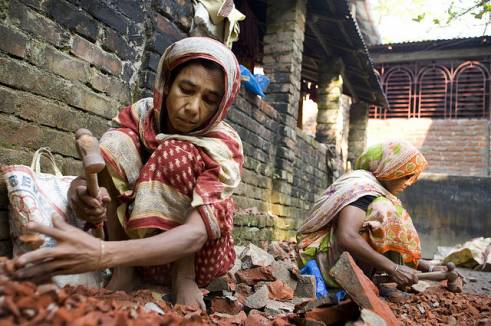By Sarah Nelson
Research published today by HelpAge, ADD International and Sightsavers, in partnership with the Institute of Development Studies (IDS) reveals how discrimination, social exclusion, bullying and violence are everyday experiences for many marginalised people. Family members can be the perpetrators of abuse and when crimes are reported, justice is rare.

“We can also make change” is a collection of perspectives of marginalised people living in poverty, compiled to help ensure those voices are heard in post-2015 negotiations on the replacement to the Millennium Development Goals (MDGs). It is the first report from the Voices of the Marginalised research project, part of the Participate initiative.
The report is published to coincide with today’s UN’s High Level Meeting on Disability and Development, part of this week’s UN General Assembly.
Real life stories from marginalised people in Bangladesh
The report shares the real-life stories of people with disabilities, older people and people with mental health issues in two Bangladesh communities; the rural Cox’s Bazar and Bhashantek, a slum area of Dhaka. The stories were gathered during 2012-13 using participatory research, where older people and people with disabilities were trained to collect and analyse stories from their peers.
To address the shocking inequalities found during the research, the report calls for global decision-makers to ensure that age and disability are treated as cross-cutting themes in all post-2015 development goals.
Commenting on the report, Dominic Haslam, Director of Policy at Sightsavers said: “This report reveals the horrific discrimination and chronic poverty faced by many older people and people with disabilities.
“These people are marginalised by society, and their voices so often go unheard. We hope this report helps bring their perspectives to the forefront of global development negotiations at the UN General Assembly this week.”
Key findings
- Bullying and violence are everyday experiences: Ignorance about disability is common, often seen as the result of evil spirits or sin, or considered contagious. Women with disabilities can be at greater risk from violence, including rape and sexual violence. One respondent, the grandmother of 13-year-old Abida said: “Children used to tease and beat my granddaughter. She couldn’t concentrate on the class work for long”.
- Work and dignity are rare: Disabled and older people are commonly viewed as a burden on the household. Often abandoned, many move to urban areas to beg. Mamun aged 65 said: “If an older person has no land, no family, no education, no money they have to beg. [My daughters] can barely manage, how will they look after me?”
- Public services are inaccessible: The twin effects of discrimination and poverty mean many respondents reported being unable to access essential public services, such as healthcare and education. Girls with disabilities find it especially difficult to access school and when they do, they often face bullying. One anonymous respondent said: “Because she was disabled and poor, she couldn’t study… Generally in our country, girls are neglected. If they are disabled there is no end to their suffering.”
What can be done?
To address these common and shocking inequalities, policymakers must:
- Ratify and implement the UN Convention on the Rights of Persons with Disabilities (CRPD) and support the elaboration of a UN convention on the rights of older people.
- Ensure that age and disability are treated as cross-cutting themes in all post-2015 development goals; and support improved disability and older-person data gathering and analysis mechanisms.
- Promote the full and equal participation of older people and persons with disabilities in social and political life.
What can you do?
- Join the conversation @helpage
- Download and share the report to make the voices of the marginalised heard
